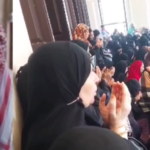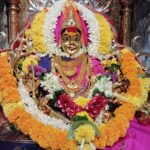K.A.Viswanathan
Mumbai: Makar Sankranti is one of the most propitious days for the Hindus and is celebrated with immense devotion, gaiety and fervour. While dates of all Hindu festivals keep changing as per the Gregorian calendar, the date of Makar Sankranti generally remains constant as per most calendars and panchang . Lohri and Bhogi are celebrated on January 14 and Maker Shankranti , Pongal and Magar jyoti on January 15. After this event, days start becoming longer and warmer and thus the chill of winter declines.

It also signifies the movement of the Sun from the inauspicious Dakshinayana to the auspicious Uttarayana, according to astral positions , transition of the sun from Dhanu rashi (Sagittarius) to Makara rashi (Capricorn).
According to Hindu mythology, on this day Lord Vishnu ended the ever-increasing terrorism of the asuras (demons) by finishing them off and burying their heads under the Mandar Parvat. Hence this occasion also identifies a period of enlightenment, peace, prosperity and happiness.

In Maharashtra and Gujarat, it is called Makar Sankranti and on this day people celebrate by flying of kites. The entire sky becomes a medley of colourful kites of various sizes and shapes. Besides in Maharashtra , people exchange multi coloured Tilguls made from sesame seeds, sugar or jaggery.
In northern India, the festival is known as Lohri while in Assam it is called Bhogali Bihu, in Uttar Pradesh, Karnataka and Bihar it is known as Sankranti and in Andhra Pradesh it is celebrated as Bhogi.
Tamilians celebrate this as Pongal which falls on January 15. It also marks the withdrawal of the southeast monsoon as well as the reaping of the harvest. Pongal is strictly a rural festival. It is the biggest harvest festival, spread over four days. In Dharavi area in Mumbai hundreds of house wives gathered before Sunrise in the entire stretch of 90 feet road and boiled the rice and milk in a pot and a turmeric plant was tied around it and it was then symbolically offered to the Sun-God along with other oblations.

As part of this Sri Ayyappa Bhaktha Samiti at Dadar celebrated Ayyapa pooja for three days from January 12 at Matunga Napoo Garden and conducted Sahasranama archana and devotional songs by Kalaimamani Veeramani from Chennai. On the last day “We make out of banana stems , four temples , which is a replica of all the temples in Sabarimala in Kerala and a mosque of Vavar, a Muslim confident of Lord Ayyappa “ said Mr. Gopalakrishna Nair the organizer whose father started this festival ,more than 50 years ago.

In the evening a procession of Lord Ayyappa was taken out from the nearby Shiva temple with Velichapadu (Oracle) carrying sword and dagger which are the weapons of the Lord and led by Pancha Vadhyam , Udukku Pattu and Nadaswaram.
































